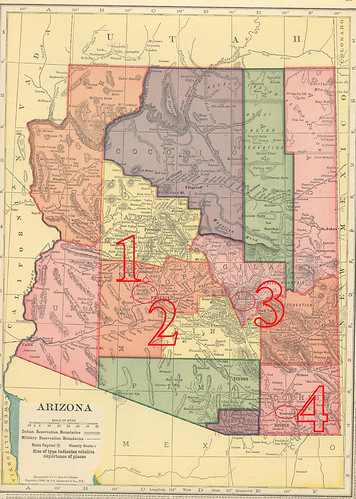We run our website the way we wished the whole internet worked: we provide high quality original content with no ads. We are funded solely by your direct support. Please consider supporting this project.
What About the Arizona Anti-Gay Bill?
The recent anti-gay bill in Arizona which was passed last week by the state’s Legislature and now sits on the desk of the Governor, would allow companies to deny service to or discriminate against gay people based on the religious beliefs of the business owner.
In response, Greg has tweeted:
“The governor of Arizona is considering signing into law a “Christian” sponsored bill allowing businesses to refuse service to GLBT folk…”
And …
“Ironic: Jesus PARTIED with the most judged sinners, ‘yet today some “Christians” fight for the “right” not to do business with them!”
And …
“If the devil wanted the best way to ensure that GLBT folk would want nothing to do with Jesus, he’d help “Christians” sponsor this bill.”
While Christian-promoters of this bill say that is about religious freedom (see this interview), we must honestly ask what’s really going on here. Is it really about religious freedom or about something else? The following is a quote from his book Myth of a Christian Nation where Greg challenges the idea that Christians should put themselves in a place of moral superiority, based on some kind of sin-grading system.
“[W]hen people assume the position of moral guardians of the culture, they invite—they earn!—the charge of hypocrisy. For all judgment, save the judgment of the omniscient and holy God, involves hypocrisy. … Instead of seeing our own sins as worse than others, we invariably set up a list of sins in which our sins are deemed minor while other people’s sins are deemed major. …
Our grading of sins has nothing to do with Scripture, of course, for Scripture no only has no such graded list of sins; it specifically teaches against such a notion. …
We feed our self-righteousness with this illusory contrast by ascribing ourselves worth at the expense of others. …
To illustrate, more than a few have noticed the comic irony in the fact that the group most vocal about ‘the sanctity of marriage,’ namely evangelical Christians, happens to be the group with the highest number of divorces in the U. S., which itself is the highest divorce rate in the world! … Whatever our excuses, outsiders legitimately wonder, ‘If evangelicals want to enforce by law the “the sanctity of marriage,” why don’t they try to outlaw divorce and remarriage? Better yet, why don’t they stop worrying about laws to regulate others’ behavior and spend their time and energy sanctifying their own marriages?”
Do evangelicals fear gay marriage in particulate because the Bible is much more clear about the wrongfulness of gay marriage than it is about the wrongfulness of divorce and remarriage? No, for the Bible actually says a good deal more against divorce and remarriage than it does against monogamous gay relationships. Do they go after this particular sin because the research shows that gay marriage is more damaging to society than divorce and remarriage? It seems not, for while one might grant that neither is idea, there’s no clear evidence that the former is socially more harmful than the latter. …
We evangelicals may be divorced and remarried several times; we may be as greedy and unconcerned about the poor and as gluttonous as others in our culture; we may be as prone to gossip and slander and as blindly prejudiced as others in our culture; we may be more self-righteous and as rude as others in our culture—we may even lack love more than others in the culture. These sins are among the most frequently mentioned sins in the Bible. But at least we’re not gay! …
So despite the paucity of references to homosexuality relative to the sins we minimize or ignore, and despite empirical evidence that some of the sins we minimize are far more harmful to people and to society than this sin (for instance, greed and gluttony arguably kill millions!), this is the sin evangelical as a group have decided to take a stand on. Why?” (136-138).
Category: General
Tags: Homosexuality, Judgement, Love, Myth of a Christian Nation, Sin, Social Issues
Related Reading

Tribalism
Sandra Unger spoke for Greg while he was on vacation the week after the 4th. In this clip, Sandra explains whats tribes are and how that creates unintended separation between people. In the full sermon, she speaks about what it means to be part of the Jesus Tribe. She discusses the reasons people are prone to…

A Cross-Like Church
When God’s church loves like God loves—which means valuing the other at cost to self—it will puzzle those outside the church. While such love might cause the religious to rail with outrage, it will cause the searching and the hungry to ask, “how can people love like this?” In God’s plan, this puzzle is what…

At the Start of This New Year
Anthony Easton via Compfight Wishing all of you a year filled with an increasing awareness of God’s presence and a willingness to go where he leads you. May you be challenged every day to love outrageously as we are loved by God. May we be one as Jesus and the Father are one. Peace and…

The Good Samaritan, Non-Violence & Eternal Life
Renaud Camus via Compfight An expert in the law asked Jesus what he had to do “to inherit eternal life” (See the story in Luke 10:25 and following). Jesus asked him what he thought the law said about this issue. The man responded, “’Love the Lord your God with all your heart and with all…

Loving Enemies in the Day of ISIS
The following excerpt from Myth of a Christian Religion discusses Jesus’ command to “turn the other cheek.” Whatever our response to the persecution of Christians in the world, we must take this passage seriously. While this excerpt does not tell us exactly how to respond, it can be used to shape our attitude and stance…

Podcast: Are the Prohibitions Against Homosexuality Culturally Relative?
Greg considers if homosexuality is culturally relative or not, and what to do about it. http://traffic.libsyn.com/askgregboyd/Episode_0306.mp3

